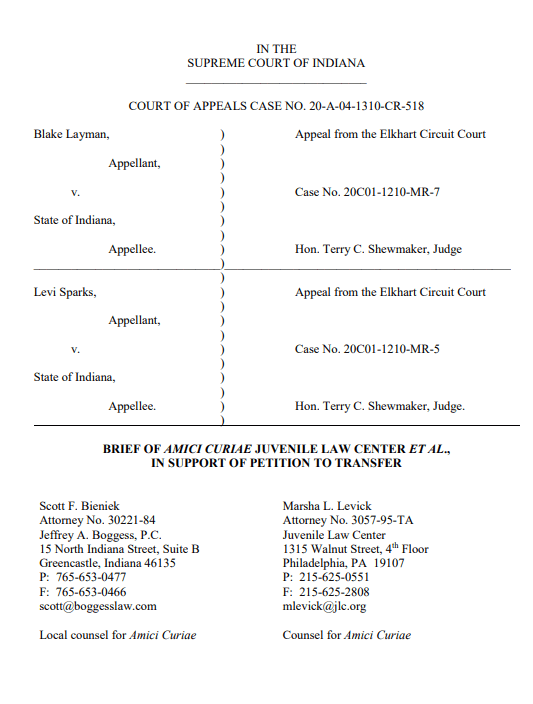
Summary of Argument
Over the past decade, the U.S. Supreme Court has held that children accused of committing crimes are different than adults in fundamental and constitutionally relevant ways. The Court has found that children who commit crimes, even violent crimes, are categorically less culpable than adults who commit similar crimes and may be deserving of lesser punishments. See Roper v. Simmons, 543 U.S. 551, 578 (2005) (holding that juveniles cannot receive the death penalty), Graham v. Florida, 560 U.S. 48, 82 (2010) (holding that juveniles non-homicide offensers cannot receive life without parole), and Miller v. Alabama, 132 S. Ct. 2455 (2013) (holding that juvenile homicide offenders cannot receive mandatory life without parole). Similarly, the Court has found that what is “reasonable” for an adult to foresee or perceive may not be “reasonable” for a juvenile in the same circumstances. See J.D.B. v. North Carolina, 131 S. Ct. 2394, 2399 (2011) (holding that determinations of “custody” for Miranda purposes, i.e., whether or not a “reasonable person” in the suspect’s position would feel free to leave, must take into account the age of the suspect). In reaching these conclusions, the Court has relied upon an increasingly settled body of research confirming the distinct emotional, psychological, and neurological attributes of youth. See Miller, 132 S. Ct. at 2464-65; J.D.B., 131 S. Ct. at 2403 n. 5; Graham, 560 U.S. at 68; Roper, 543 U.S. at 569-70.
This Court now has the opportunity to consider how this recent U.S. Supreme Court “children are different” jurisprudence impacts Indiana’s application of its felony murder doctrine to juveniles. Amici submit that broad application of Indiana’s felony murder statute to juvenile offenders fails to consider established research on adolescent development and brain science and conflicts with U.S. Supreme Court jurisprudence. This Court should grant the Petition to Transfer.